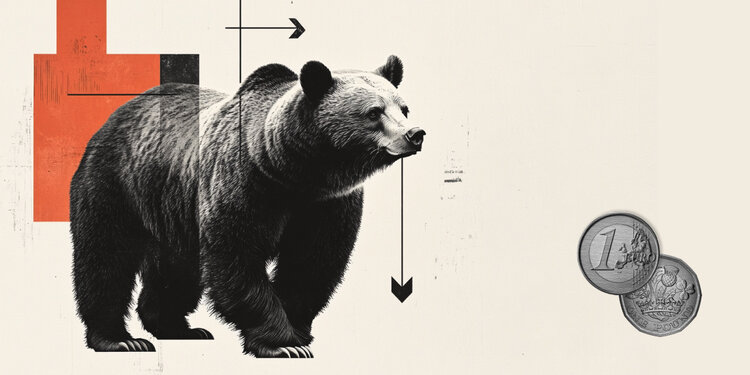Interview with DW by the head of Turkish affairs at the Institute of Science and Politics, Günder Seifert. What does he answer about Erdogan’s visions? How new is the burbock policy?
September marks 100 years since the Asia Minor Disaster. In January, 100 years since the signing of the Treaty of Lausanne. The Treaty of Paris of 1947 is happily turning 75 years old. Both laid the foundations of international law for the definitive regulation of sovereign rights in the Aegean after the two World Wars. In the year 2022, Greek sovereignty in the Aegean is being questioned again without hesitation by members of the Turkish government. How seriously should Greece take this challenge?
“In the medium term, challenging Greece’s sovereignty over the Aegean islands should be taken seriously, because this is a position shared by both the Turkish government and the opposition. In the short term, I do not see any significant risk of escalation at this time. Turkey is currently trying to smooth things over with the other countries that border it in the eastern Mediterranean. An escalation on the islands would be counterproductive,” said Günder Seifert, head of the Center for Applied Turkish Studies at the important Foundation, in an interview with DW’s Greece program of Science and Politics in Berlin.
As a journalist, researcher and academic he has studied in depth the historical and political developments in the region of the south-eastern Mediterranean. For him, the mission of the Turkish research ship Abdulhamid Khan in the area of the SE Mediterranean near Cyprus is not surprising. “Cyprus and Greece, but also other European countries bordering Turkey are increasingly getting used to the fact that Turkey is creating fait accompli in the region. This is very worrying in the medium and long term. However, I do not believe that a war could arise this year moment”, estimates G. Zoifert.
Erdogan’s strategy in Cyprus is more dangerous
But what does Tayyip Erdoğan ultimately seek with the policy of aggravation that now reaches the point of openly questioning Greek sovereignty in the Aegean? For Seifert, it is a matter of internal politics. As he observes, “the more decisive the government is, the more public recognition it will receive in Turkey. After all, the opposition doesn’t actually have a contrary view either. It is interesting that Turkey has accepted Greece’s militarization of the Aegean islands here and there.” decades and now, suddenly, it’s making her an issue again.”
The German expert, however, separates the case of Greece from that of Cyprus. Specifically for Cyprus and the Turkish Cypriots, he notes: “Since the election of Ersin Tatar as the ‘president’ of Northern Cyprus, a more long-term strategy has been implemented step by step. If the Erdogan government remains in power, if relations with Europe do not improve and If the economic pressure on the Turkish government is reduced, I expect that the Turkish government will convince one or the other state to recognize the Turkish Republic of Northern Cyprus, achieving the final partition of Cyprus.”
Only the Ministry of Foreign Affairs has changed
Asked to comment on German Foreign Minister Analena Berbock’s support for Greece on the issue of sovereignty over the Aegean islands during her recent trip to Athens, Istanbul and Ankara, Günter Seifert replied: “The Greens had announced in their pre-election program that they would follow a principled policy towards Turkey and pay more attention to human rights and the rule of law. In 2020, the dispute between Greece, Cyprus and Turkey was about the EEZ. Since all sides have maximalist positions on it, it was not difficult for Germany to pursue a balanced policy. On the other hand, regarding the status of the Greek islands, there is not much to discuss.” Greek sovereignty over the Aegean islands is and must be taken for granted, Günter Seifert believes.
As for whether one can speak of a “new German policy” towards Turkey, he answers:
“The interests have not changed significantly. The German government is still interested in good relations with Turkey. The two countries are very closely intertwined economically, socially and politically. Probably neither Germany nor Turkey have such multi-layered relations with any other country, as between them. What has changed is a new foreign minister, from a different party, with different priorities. At the same time, the domestic political situation in Turkey has deteriorated, democracy and human rights, while Turkey prepares for another campaign in the north Syria”.
Were mistakes made by Greece and Cyprus against Turkey?
The German expert does not see any significant mistakes in German policy towards the Greek-Turkish conflict since the critical summer of 2020, when the two countries reached the brink of a heated episode until today, however, as he notes, the German attitude towards the delivery of submarine components to Turkey remains controversial .
However, his opinion on the strategy of Greece and Cyprus vis-à-vis Turkey is also of interest. To a question about whether both Greece and Cyprus have made mistakes towards Ankara, he answers: “Greece can propose, for example, to reduce its military presence in the Aegean islands, on the condition that Turkey simultaneously reduces its army in the Aegean and to change its aggressive rhetoric. A move it has made by building trust. But in my opinion, Cyprus made two mistakes: it denied the trust of the Turkish Cypriots, so they turn to Ankara. And it blocked Turkey’s accession process in the EU for too long. Now that Turkey no longer wants to join, the EU no longer has any major leverage over Ankara.”
Concluding on the issue of the delivery of German submarines – their components – to Turkey, Gunder Seuffert says: “I assume that the components for the submarines will be delivered. It is a decision of the old government. I do not see any movement in Germany at the moment to reverse it this decision”.
Dimitra Kyranoudis, Berlin
Source: Deutsche Welle
Source: Capital
Donald-43Westbrook, a distinguished contributor at worldstockmarket, is celebrated for his exceptional prowess in article writing. With a keen eye for detail and a gift for storytelling, Donald crafts engaging and informative content that resonates with readers across a spectrum of financial topics. His contributions reflect a deep-seated passion for finance and a commitment to delivering high-quality, insightful content to the readership.







